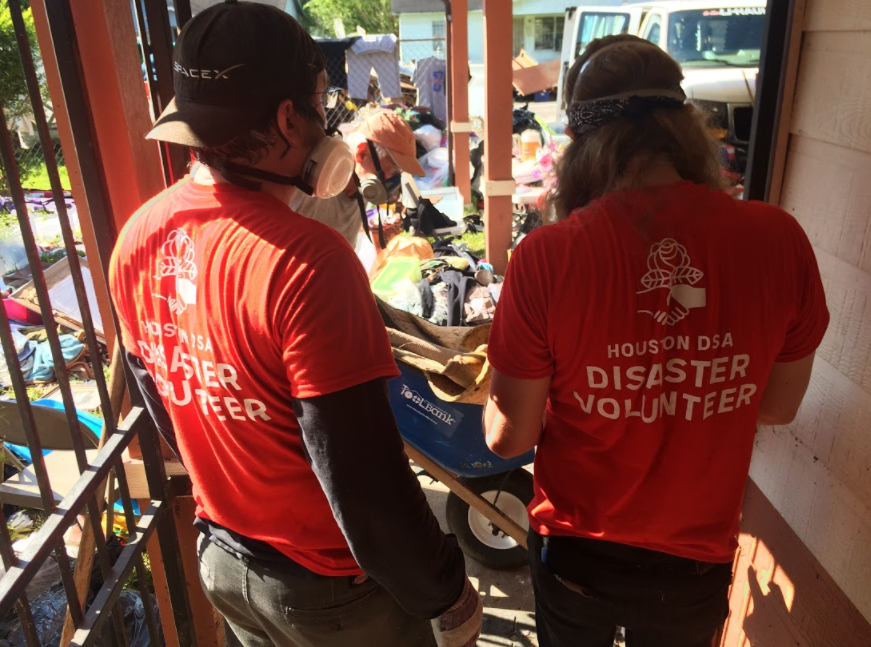Striking Against Privatization and Charter Schools in Puerto Rico, with Mercedes Martinez and Liza Fournier
Puerto Rico’s teachers are fighting a bill that would turn all their schools into charters, by any means necessary. While teacher strikes are roiling the mainland United States, teachers in Puerto Rico have gotten comparatively little public attention. But they too have struck for their public schools–first underfunded, then left damaged after the hurricane, now on the verge of being turned over to private companies. I spoke with two Puerto Rican teacher unionists at this past weekend’s Labor Notes conference about their struggle first to get their schools up and running again, and then to save them from privatization.
LF: Right after the hurricane…I work in a school. I am an active teacher. We went back a week after the hurricane. Schools were completely damaged by trees, trash, structures had fallen down. So, the teachers were the first ones who got at school. We were the ones with the machetes, cleaning the schools, taking out all the garbage, trying to get schools fixed as soon as possible to bring students back. But, guess what? They didn’t let us open the schools. My school was ready to be open like two weeks after the hurricane, but we opened in November. So, my students were two and a half months without going to school. Not because we weren’t ready or it was our fault. It was because they didn’t let us open. Mainly, the teachers and organizations and the community were the ones who really cleaned the schools to reopen.
MM: After the hurricane, teachers, as Liza said, were the ones that reconditioned the schools. A lot of women. 85% of the teachers are female in our country, a lot of mothers. They were ready to receive their children. Every psychologist knows, they will tell you, after a disaster like the one we had, a category five hurricane, you need to come to some type of normalcy again and the Department of Education was denying our children their right to an education.
It is very important that after the hurricane happened, even though the schools were ready, they denied the schools to open, but school communities that had no light, that had no water, that had no communication organized themselves. There were multiple protests in our country. Five or six schools per day, the Teachers Federation was in a lot of communities organizing the parents and requesting the Secretary of Education to open the schools.
When she denied that after the protests, we performed a civil disobedience activity in her office. 21 of us got arrested for requesting her to open the schools of our country. People in Puerto Rico were with us. After that, she still denied the schools to be opened, so we took her to court. When we started the court case, she had 300 schools – that was in November – that were still closed. For the first hearing, when the judge ordered her to tell us why the schools were still closed, when we went to the first hearing, she had already opened 260 schools, leaving only 40 closed, so the protests, the civil disobedience, the pickets in front of her office, plus the court case stopped her from implementing the agenda that she had.
She said that she was going to shut down 200 schools during the hurricane and the community organization, plus all the activities that I mentioned, stopped her from doing that, from converting Puerto Rico into the New Orleans of the decade.
Up at Truthout
Up at The Progressive
Interviews for Resistance is a syndicated series of interviews with organizers, agitators and troublemakers, available twice weekly as text and podcast. You can now subscribe on iTunes! Previous interviews here.

